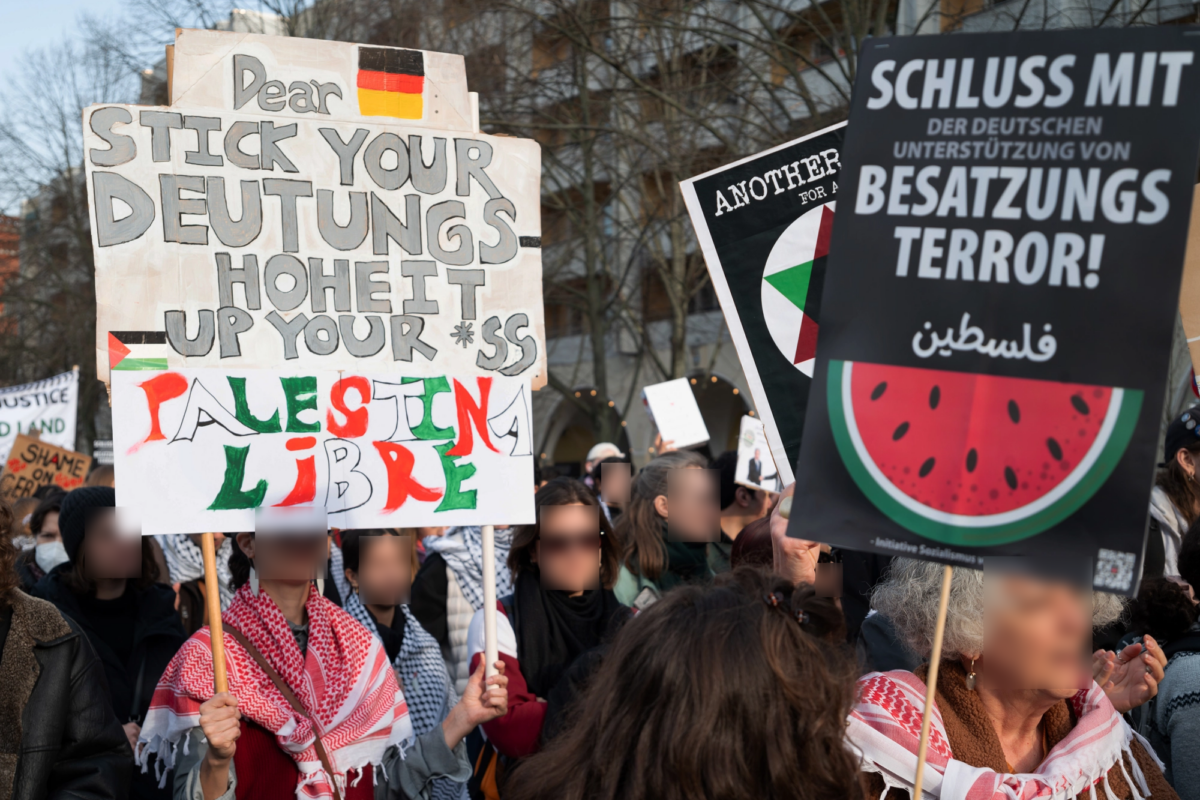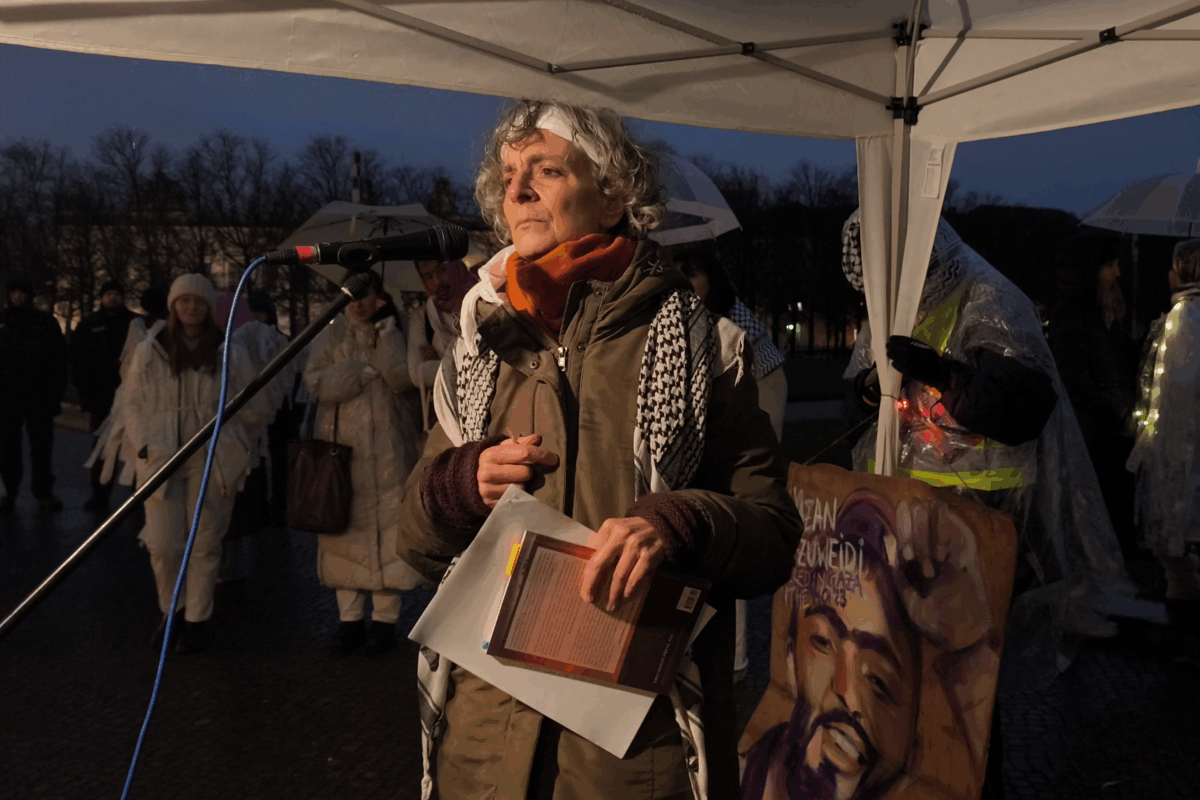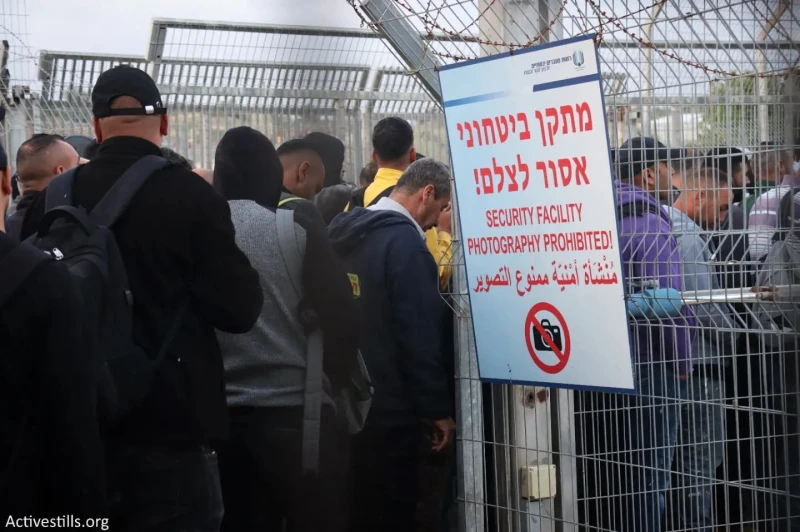During my time working at a company in Hamburg, I experienced an unsettling encounter that revealed deeper tensions beneath Germany’s polished surface of political correctness.
One morning, as I ate a croissant and drank coffee at my desk—an ordinary practice among colleagues—a colleague confronted me. Her initial critique of me having breakfast in the office might have been reasonable, but she soon curdled into something darker.
With palpable condescension, she declared: “Different countries have different norms. Some behaviors might be acceptable in China” (I am not from China, of course) —a revealing assumption.
Before I could respond, her tone shifted, laced with something darker:
“What you’re doing is extremely rude. You might not understand, and I am not even sure where you have gotten your education, but I do—as I was highly educated in Europe. My grandmother was educated with the Hitler’s family.”
The casual invocation of that name stunned me. At this point, I almost shouted at her:
“Hey, If my breakfast disturbed you, you could have simply asked me to move. Instead, you’ve chosen to assert your supposed superiority based on your family’s ties to Nazis. Are you serious?”
Silence hung in the air, and she said. “Get out of this room!”
The Paradox of German “Tolerance”
Having lived in the U.S. and Germany, I’ve faced racism in many forms, from micro aggressions to outright hostility. The true significance of this incident lay not in the individual’s racist remark, but in the system’s reaction.
When I reported the incident, my supervisor’s response arrived as a sterile rebuke: “I heard the incident. Such language that she made is not permitted in Germany.” Not solidarity. Just policy enforcement—as if racism could be reduced to a terms-of-service violation.
Then came a colleague’s well-meaning but revealing attempt at comfort: “I’m sorry this happened to you—it’s so strange. Racism doesn’t exist in West Germany.” This was more than personal naivety; it unmasked an institutionalised delusion that prioritises bureaucratic distinctions over people’s actual experiences.
That encounter has stayed with me as emblematic of my early experiences in Germany: a society where history looms large yet remains clinically detached. One where people obsess over saying the correct thing but seldom interrogate why those words carry weight.
It forced me to reconsider some linguistic prohibitions:
Do they truly provoke deeper reflection on meaning and context, or do they paralyze thought altogether? Are people avoiding certain words not out of understanding, but out of programmed obedience?
I write these words from Berlin, twenty months after the genocide in Gaza began—a genocide that has played out in real time, streamed live to the world, documented by both its perpetrators and its victims. The evidence is undeniable: every moment, every atrocity, digitally recorded. Every report from human rights organizations affirms what we already know—this is a genocide, declared as such in plain sight.
And yet, as this horror unfolds before the eyes of the world, we were forced to confront another grotesque reality: the staggering hypocrisy of Western governments and media. The German state and its press are in the forefront..
What proved most disquieting was the cognitive dissonance of some of the German Liberals. They master the language of social justice while rationalizing Zionist colonialism. Their discourse, though polished, betrays a fundamental evasion. They champion solidarity in theory, yet refuse to practice it by reflecting the time and space they live in.
The Colonial Core of Zionism
Zionism, in practice, constitutes a settler-colonial enterprise. Its foundations were laid through the systematic dispossession of Palestinians, the expropriation of their lands, and the institutionalization of apartheid. The purported theological justification – this notion of ‘God gave us this land’ – is nothing but cynical artifice, a thin scriptural veneer over what is ultimately a project of territorial conquest.
The persistent framing of this occupation as a ‘multi faceted geopolitical issue’ speaks not to its actual nuance, but to Western complicity in maintaining structures of illegal occupation. What unfolds is not some unprecedented diplomatic quandary, but rather the oldest colonial narrative rewritten with contemporary military might. Germany, with its intimate familiarity with both colonial violence and genocide, requires no interpreter to comprehend this language of displacement and erasure.
Those who profess progressive ideals while accommodating this particular oppression participate in a profound moral contradiction. Authentic solidarity demands unflinching clarity – the courage to name oppression as oppression. Even when that recognition implicates our own historical narratives and present complicities.
For many Europeans, colonialism remains a comfortably distant sin, a historical wrong committed elsewhere, by some others. This delusion is precisely the problem. Colonialism was never merely a policy, it is a mindset. It begins with dehumanization,reducing people to obstacles.
Rewinding History: Europe’s Debt, Palestine’s Price
Oppression does not vanish; it merely relocates.The core issue persists today, regardless of what euphemisms we use to disguise it. Those who fancy themselves progressive must face an uncomfortable mirror: The same ideologies that fueled colonialism abroad mutate into fascism at home.
Let us confront the past with unflinching clarity. For centuries, Europeans – Germans most particularly and viciously – persecuted Jewish people, culminating in the industrialized horror of the Holocaust. Yet when Jewish survivors, shattered and stateless, sought refuge, Western nations, fully aware of the atrocities – shut their doors. Palestine was thus imposed as the “solution,” perpetuating a cruel irony.
What haunts Germany’s conscience is the unasked question. Namely, if its reckoning were genuine, why does Germany not pay off its own crime by offering its own land?
This is not atonement, but alchemy – transmuting German accountability into Palestinian subjugation. True repentance would mean bearing history’s weight directly, not displacing its violence onto other oppressed people.
The Hierarchy of Memories
Germany’s remembrance of different genocides is selective.The Holocaust’s Jewish victims occupy the center of German remembrance; the Roma, Sinti, disabled, and queer victims are footnotes. The genocide of the Nama and Herero in Namibia is treated as a historical curiosity. In Germany, public memory remains narrowly curated—other genocides fade into silence.
By enshrining the memory of one genocide while consigning others to oblivion, I cannot help but ask; does Germany truly reckon with its past for its action regardless of victims—or merely instrumentalize it? And what is this selective solidarity, if not racism rebranded as moral duty?
Today
Today, Gaza burns,its annihilation broadcast live to a watching world. Germany, whose factories once mass-produced genocide, now bankrolls its reproduction.
We can confront this together. Political consciousness is not a destination but a journey,one that demands we walk with open hands, ready to both release old certainties and grasp new understanding.
Our principles,no matter how passionately held, are not immune to the contradictions of state education and cultural conditioning.
The work of solidarity requires constant interrogation: Are my beliefs coherent, or have I internalized curated ideologies? Does my opposition to oppression extend universally, can a conscience be curated? Or does resistance stop where power begins?
Remember this. Eighty winters ago, Nazi Germany was crushed by Allied armies, not by German people’s resistance. Without their military loss, the regime could have endured indefinitely, sustained by public silence.
This very historical fact screams across the decades: violence unchecked becomes legacy. Complicity wears many masks—silence, equivocation, selective outrage—but its harvest is always the same. So I ask you today: Can your solidarity transcend the color line in the face of this genocide?




